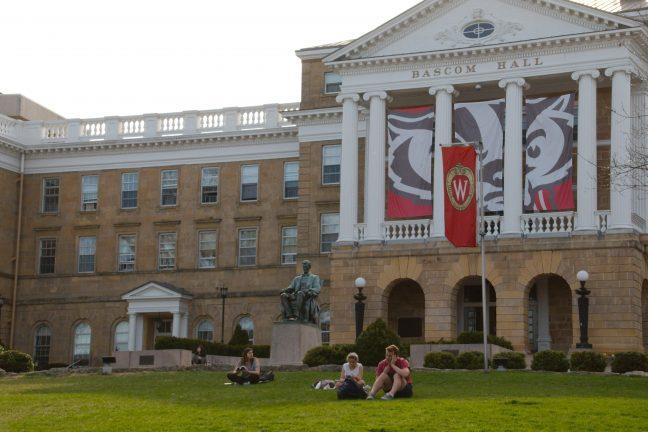Enrollment in the University of Wisconsin’s Chicano/a and Latino/a certificate program has boomed over recent years, increasing from just 50 enrolled students in 2016 to over 200 in 2023, according to the Wisconsin State Journal. In response to this surge in student interest in cultural and heritage disciplines, the university is launching a bachelor’s degree in Chicano/a and Latino/a studies this fall.
The director of the Chicano/a and Latino/a certificate program suspects this surge in students’ interest in a Hispanic studies major is driven by their desire to pursue an interdisciplinary path of study.
Students pursuing careers in various fields — including business, policymaking and healthcare — can all benefit from learning about the cultural and political experiences of Mexican-American and Latin American populations. Brown University’s Hispanic Studies has aided in students’ success in careers including clinical psychology, international consulting, publishing and teaching. Graduates claim Hispanic studies have helped them with intercultural communication in their respective customer bases.
For instance, the Center for Disease Control explains that recognizing the collectivist nature of Hispanic culture can allow healthcare providers to target specific social networks to communicate health information.
Moreover, recognizing and understanding the cultural distinctions of different Hispanic subgroups — such as Puerto Ricans, Cubans, and Mexicans — can help healthcare providers avoid making generalizations and provide more personalized medical care. This is especially crucial as Hispanic individuals make up nearly 20% of the country’s population, according to Pew Research Center.
Through unique perspectives, the Chicano/a and Latino/a degree program can help promote cultural consciousness in UW students both before and after graduation. As the university prepares students to become active members of their diverse campus and post-graduation communities, it is crucial that it provide curriculums centering around our country’s largest minority groups. Implementing this major can also lead to the expansion of the Chicano/a and Latino/a Certificate Students Association, an organization designed to improve the visibility of the UW Chicano/a and Latino/a campus community. The benefits of this new program may be especially profound for students with Chicano/a and Latino/a backgrounds.
For one, research from the National Library of Medicine shows ethnic studies education improves academic outcomes for low-income students and students of color. Flora Mendoza, an alumni of Yale University’s Latin American Studies program, says academic study of Latin American culture helped connect her to her heritage — even after graduation.
Programs of study surrounding Hispanic heritage are not only crucial to create space for marginalized students on campus, but they can also allow students to explore their cultural identities in an academic setting.
Individuals from non-Hispanic backgrounds also greatly value opportunities to study Hispanic culture and heritage. Hussna Yasini, a pre-medicine student at the University of Colorado–Denver, said she pursued a degree in Spanish to be able to communicate with her patients as a future physician. Learning Spanish allowed her to connect with patients while she performed clinical research in Latin American countries as well.
A major in Chicano/a and Latino/a studies will add another dimension to the benefits provided by language studies. This new major will allow students to delve into Hispanic pop culture, art, gender studies and political struggles from social science and humanities perspectives, according to the Wisconsin State Journal. In turn, students will gain a deeper understanding of the historical and contemporary experiences of Hispanic communities.
The Chicano/a and Latino/a major especially satisfies the core values of the Wisconsin Experience, which aims to mold undergraduates to become more active and contributory citizens through both classroom and experiential learning. Students will gain the ability to form connections in the real world and exemplify culturally conscious citizenship.
According to the Association for Ethnic Studies, heritage-based majors can promote community-building within diverse communities. The major can also bring changes at the individual level. Natchee Blu Barnd is a professor of ethnic studies at Oregon State University. Barnd says ethnic studies can improve self-visibility, allowing people to perceive their worldview from a critical lens.
Uncovering these perspectives can help students develop an understanding of their social position and appreciate the experiences marginalized communities face regularly.
Also, UW currently offers only one ethnic and Indigenous nations studies program, according to the new major announcement. The Chicano/a and Latino/a studies major will promote acceptance and belongingness for Hispanic and Latino students, who make up around 7% of the undergraduate student population, according to the University of Wisconsin System. Learning from outside a white, colonial perspective is imperative for accurately understanding history and how its legacy continues today.
But, a more accurate representation of America and Hispanic history is only the first step to more dramatic change. A study from the American Psychological Association found that the University of Wyoming’s Chicano Studies Program helped improve students’ critical cultural thinking to promote social justice. Essentially, students who are aware of Chicano communities’ social experiences can inspire transformative change across disciplines and industries.
Students have already begun supplementing their education with Chicano/a and Latino/a education through UW’s certificate and its affiliated Chicano/a and Latino/a Certificate Student Association. But, expanding the program into a major will allow students to focus their academic careers and professional goals more fully on Hispanic cultural heritage studies.
The major will not only open doors to interdisciplinary education, but it will also create a more comprehensive space for Chicano/a and Latino/a studies in traditional academia.
Aanika Parikh (aaparikh5@wisc.edu) is a freshman studying molecular and cell biology.



